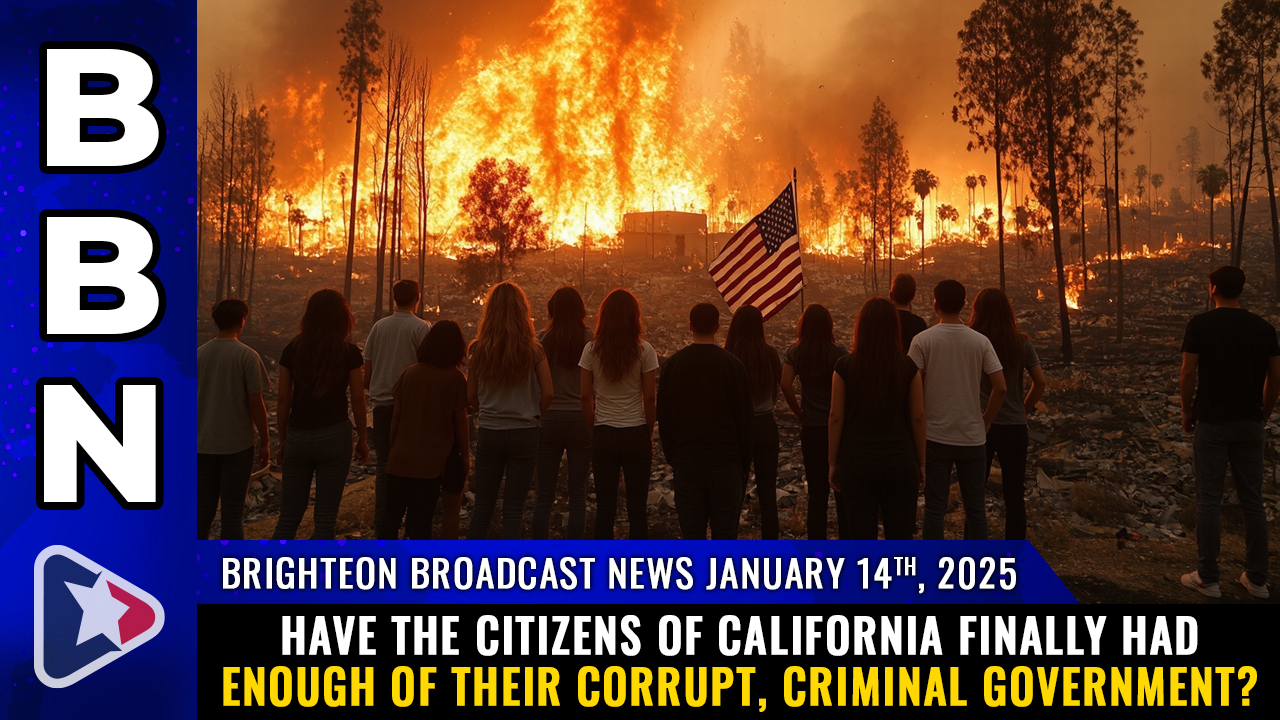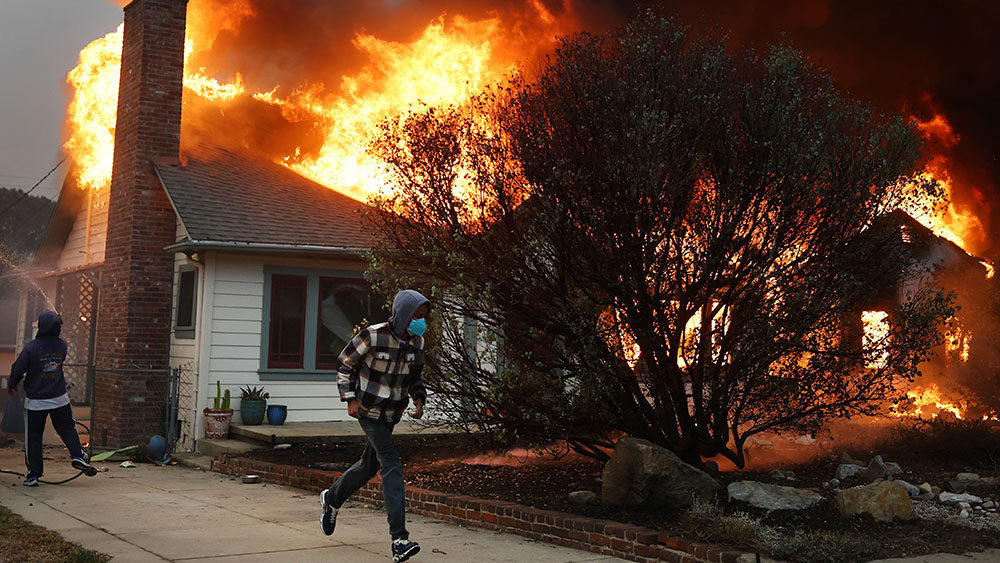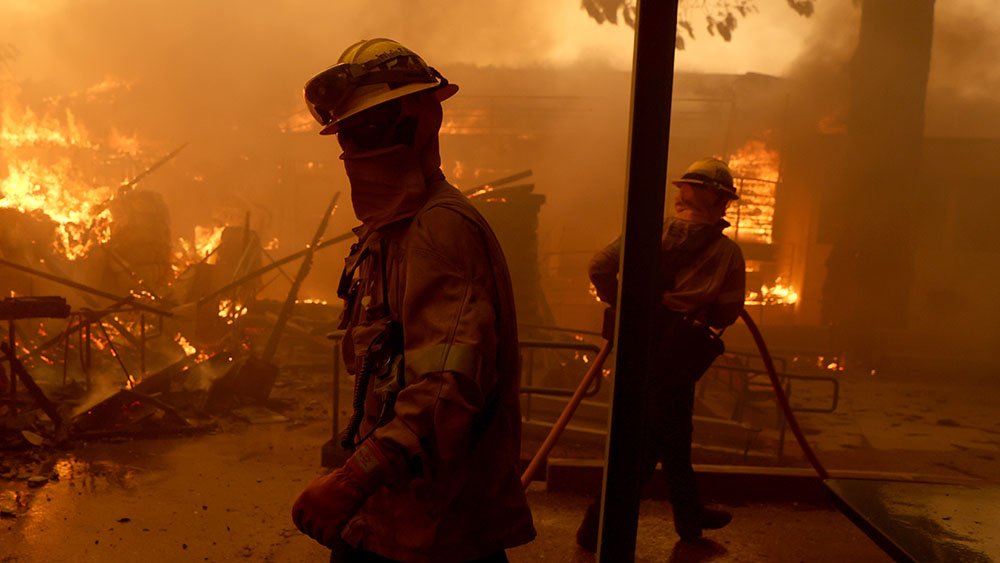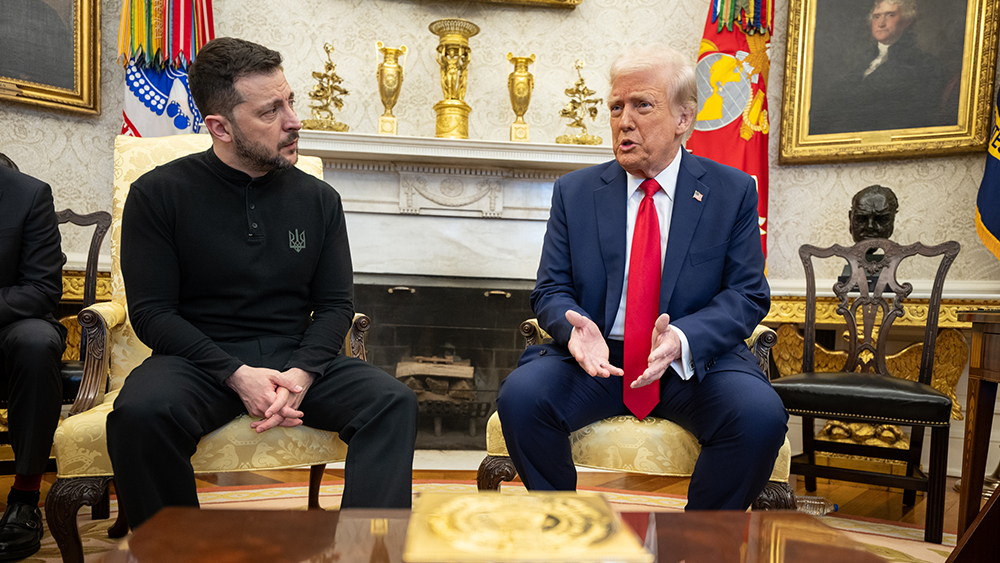Report: Biden considering striking Iranian nuclear sites
By arseniotoledo // 2025-01-06
Tweet
Share
Copy
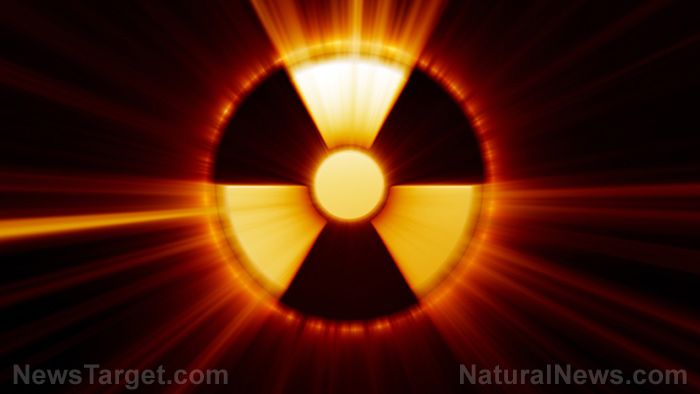
- Outgoing President Joe Biden and top national security advisers reportedly discussed potential military action against Iran's nuclear facilities amid allegations over Iran's rapid uranium enrichment nearing weapons-grade levels.
- The meeting explored military and strategic options but did not result in a recommendation or authorization for a strike, with officials emphasizing it was "prudent scenario planning" rather than a response to new intelligence.
- Iran's perceived vulnerability, due to weakened regional allies like Hezbollah and Assad's regime, raises concerns it may accelerate its nuclear program to deter regime collapse, potentially prompting preemptive action.
- Iran denies seeking nuclear weapons, claiming its program is for civilian purposes, while the International Atomic Energy Agency (IAEA) reports it has enriched uranium to 60 percent purity – close to weapons-grade – with enough material for four bombs.
Iran denies developing nuclear weapons
Iran, for its part, has consistently denied seeking nuclear weapons, maintaining that its nuclear activities are solely for civilian purposes. In a statement, Iranian Foreign Minister Abbas Araghchi reiterated Tehran's openness to negotiations but warned that sanctions and pressure would only strengthen Iran's resolve. "The more they impose sanctions and pressure on Iran, the more Iran will show resistance," Araghchi said. "If they opt for fair, just, and dignified negotiations and speak with the language of respect, we will respond in kind." The International Atomic Energy Agency (IAEA) claims that Iran has been able to enrich uranium to 60 percent purity, a level alarmingly close to the 90 percent needed for use in nuclear weapons. Agency Director General Rafael Grossi described the situation as "very concerning," noting that there is enough 60 percent enriched uranium to produce four nuclear bombs. Behind the scenes, some of Biden's top aides have argued that the combination of Iran's advancing nuclear program and the weakening of its regional influence presents both an imperative and an opportunity for decisive action. Sullivan reportedly highlighted the degradation of Iran's air defenses and missile capabilities, as well as the diminished strength of its proxies, as factors that could improve the odds of a successful strike while reducing the risk of retaliation. However, the administration remains cautious. A U.S. official noted that Sullivan did not recommend military action during the meeting but instead focused on scenario planning. Biden himself reportedly questioned the urgency of the situation, weighing whether Iran’s actions justify a dramatic military strike just weeks before a new administration takes office. Watch this InfoWars video discussing how the claims that Iran is plotting a nuclear attack could be a Deep State conspiracy to plunge the U.S. into another forever war. This video is from the InfoWars channel on Brighteon.com.More related stories:
The fall of Syria: A dangerous prelude to war with Iran? Iran sitting on "secret weapon" more powerful than nukes, general claims. West fears Russia has given Iran NUCLEAR BOMB SECRETS in exchange for missiles to attack Ukraine. FBI claims Iran sent stolen Trump documents to Biden's campaign before he dropped out of the race. Sources include: RT.com Axios.com Brighteon.comTweet
Share
Copy
Tagged Under:
collapse Iran military national security nuclear weapons nuclear war nuclear White House big government chaos Joe Biden WWIII uranium enrichment Jake Sullivan nuclear sites weapons-grade uranium
You Might Also Like
California in crisis: Mike Adams forecasts five paths to state collapse
By Finn Heartley // Share
Why is Ukraine trying to cut off Europe’s energy supply?
By Lance D Johnson // Share
Denmark open to allowing Trump increased U.S. military presence in Greenland
By Arsenio Toledo // Share
Recent News
